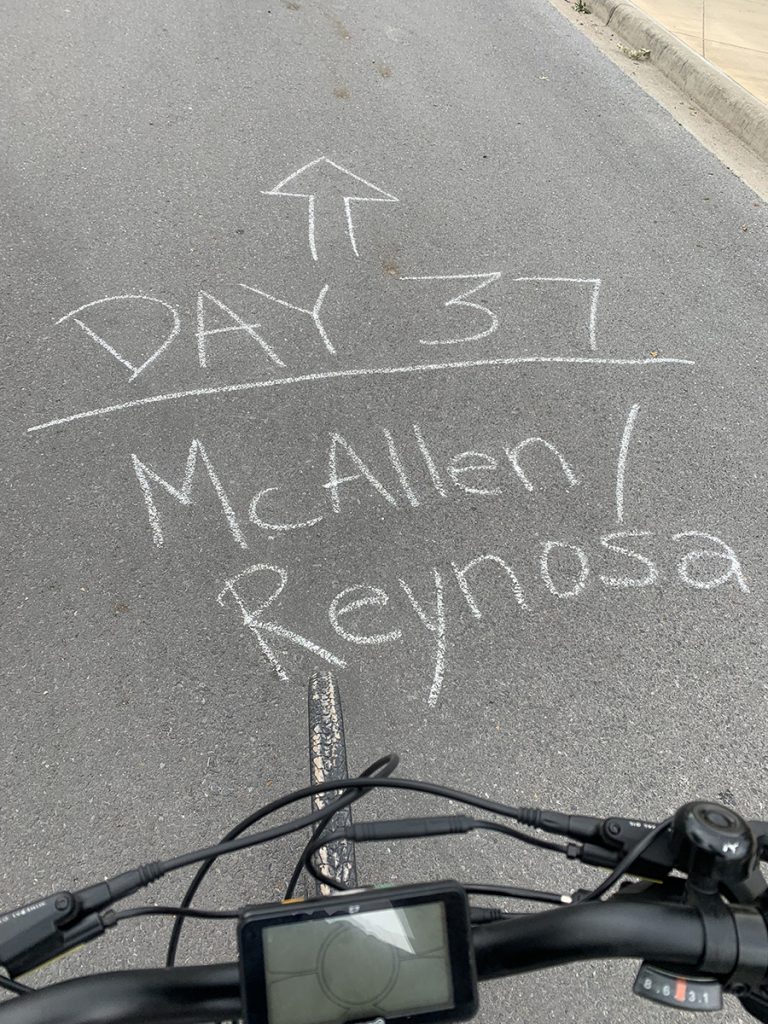
This past weekend I traveled to McAllen, TX, to join the We The People Ride initiative (wethepeopleride.org). Led by the folx from Vote Common Good, this work has a group of cyclists riding the entire southern border of the United States to raise awareness of border and immigration issues. I traveled with my colleague, Dr. Robyn Henderson-Espinoza and the Activist Theology Project.
Some of the cyclists have ridden from the beginning. I joined at the McAllen stop, one stop prior to Brownsville, TX, the end of the US/Mexico border. Friday night, we met our partner organization for the weekend, Practice Mercy, at a ranch outside McAllen for dinner and fellowship. Practice Mercy is one of the only faith-based organizations in McAllen (Catholic Charities is the primary). They are a lean non-profit, making them limber in their ability to help and limited in their capacity to manifest large volumes of care. Their work is best characterized by them, on their website:
Our ministry is a ministry of presence; a presence that brings the hope of Jesus, the mercy of Jesus and love of Jesus by nature of building genuine friendships. Because of your charitable gifts and donations we are able to provide for basic needs such as clothing, footwear, vitamins, toiletries, and coverage for medical expenses. We work to raise awareness of policy impact, correct narratives and connect migrants with lawyers and/or shelters so they can take the next steps in their journey.
Led by one of the most assertive leaders I’ve ever met, Alma Rose and Practice Mercy work primarily with women and children seeking asylum and prioritize their efforts on the indigenous women and children of Central America, who are on the margins of the margins at the border. These women are fleeing violence and poverty in Honduras and Guatemala and speak only broken Spanish. Since their Spanish isn’t understandable, they are shunned in the migrant camps and suffer from a compounded level of marginalization.
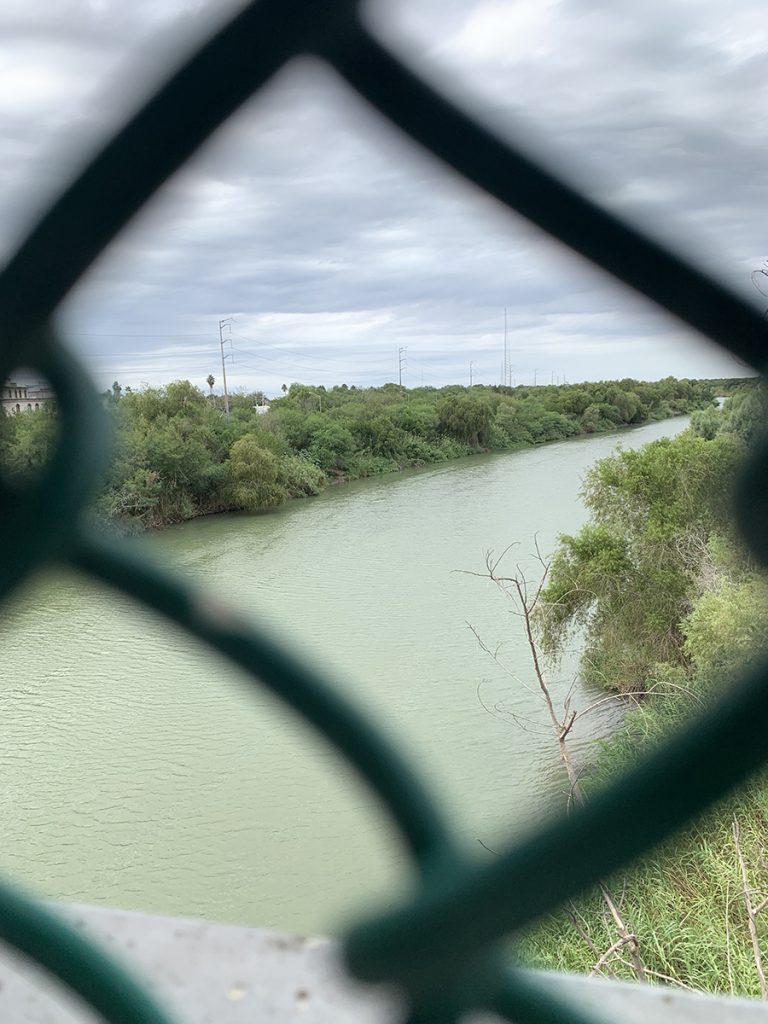
On Saturday morning, we gathered at the McAllen public library to meet with some press outlets and then head to the border. The ride from the library to the border was a short 12.5 miles. I won’t lie to you and tell you that I wasn’t worried about my capacity to ride that distance. But the ride was relatively flat, and those of us who mounted bikes made it to the border without incident. Once there, we crossed the Rio Grande with our bikes and arrived in Reynosa, Mexico. A town square about three blocks from the river’s edge, which was about as large as a city block, was housing 3,500 asylum seekers and migrants, many of whom were women and children.
Our afternoon was spent with five families, all seeking asylum, all arriving in Reynosa no less than three months ago, all living squeezed in the town square, and all bringing stories that were devastating to hear. Each of the women shared how they had given money to a coyote to help them reach Reynosa. That trip alone was dumbfounding. Thirty days in a cattle trailer with no less than 300 other individuals. Imagine that for a second: a space around 10’ wide and 53’ long with 300 individuals and children crammed inside. It’s unimaginable for me. There were similarities in their stories; all had left abusive or absent men, all were horribly poor, living hours from city centers in their countries. Three of the four women were mothers of more than one child and had to decide which of their children they would bring with them. All of them left their daughters behind, opting to bring their sons so that MS-13 gangs wouldn’t scoop them up at a young age. All are seeking safety in the United States with a family member who can help them build a home free from violence and the level of poverty they experience for the whole of their lives.
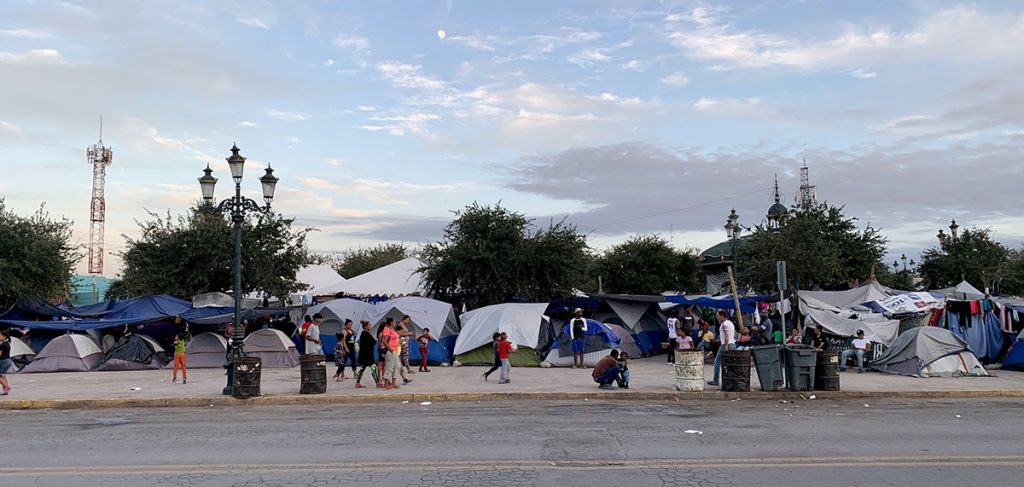
Alma Ruth and Practice Mercy are not only supplying these women with daily necessities. Alma, a Mexican immigrant herself, teaches them Spanish and helps them learn how to tell their stories – how to describe their trauma, plead for others to recognize their humanity, and stand boldly in front of immigration courts. Their stories are heartbreaking. They are also stronger humans than I will ever be. Their stories broke my heart into pieces. Their ability to tell those stories to immigration officials will hopefully have the same result. I encourage you to learn more about Practice Mercy and the work they are doing on the ground. If your congregation is looking to support an organization that is truly a grassroots, faith-centric operation, I also encourage you to share your money and time with them.
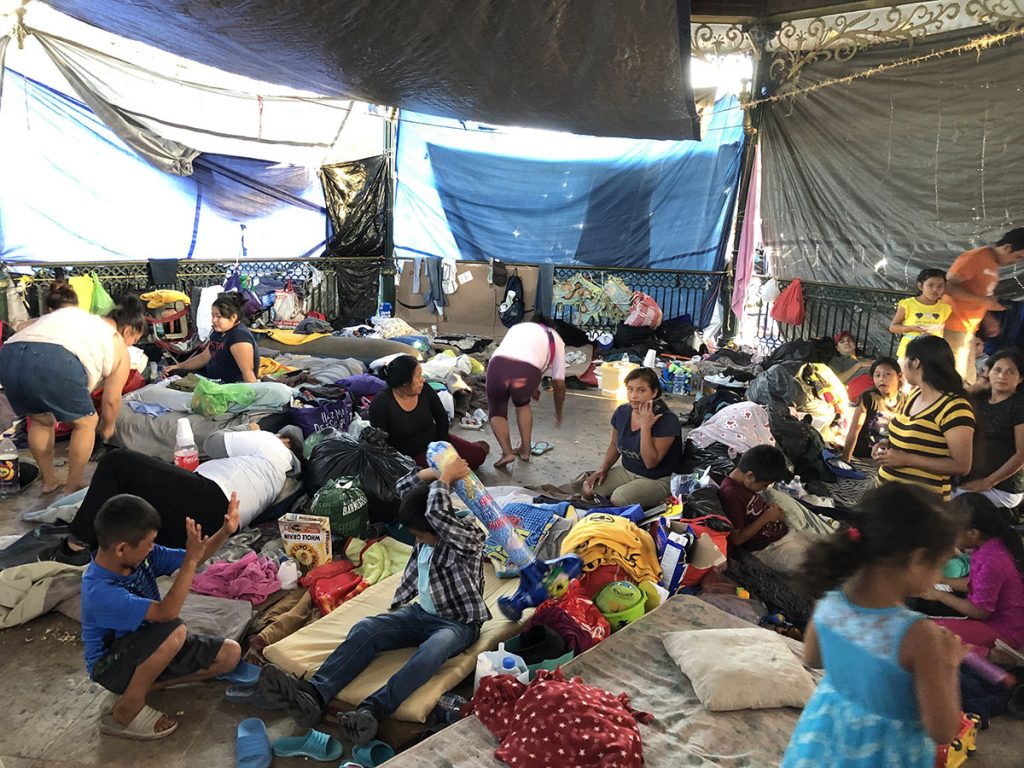
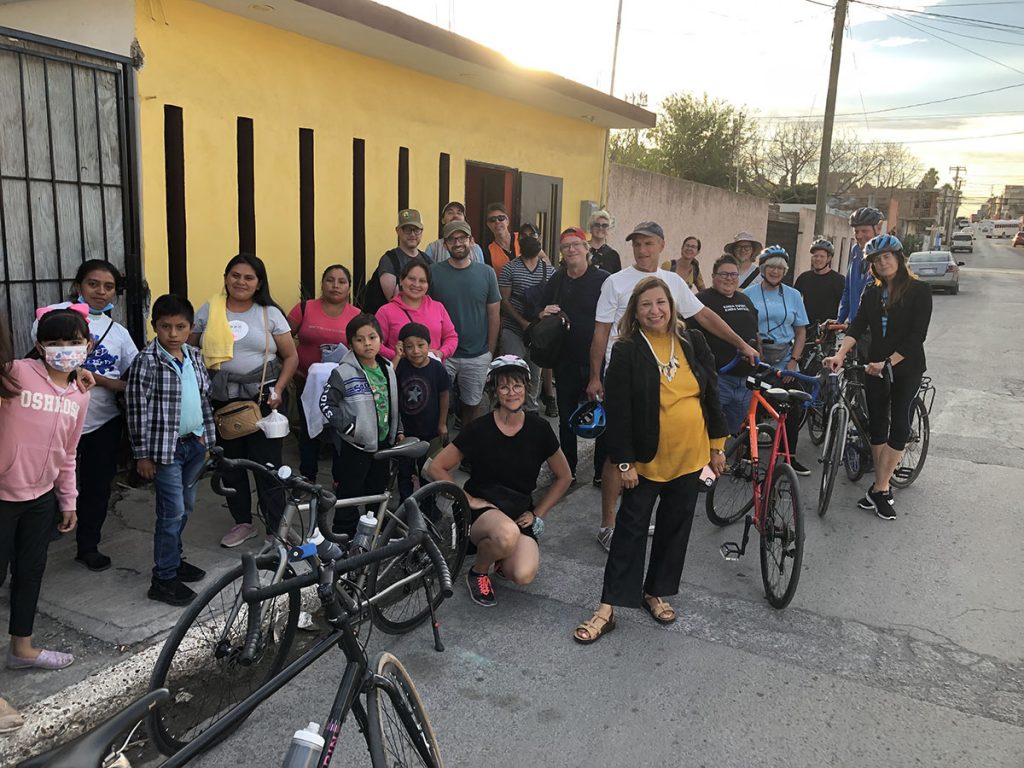
Our immigration policies are broken. We need to be humans of faith engaged in this conversation in our cities, states, and nation. We need to lobby for a change in policies so that Trump-era regulations are not only expanded but truly help the least of these in our midst. We are followers of a brown Savior, yet we are unable to see and understand what we are doing to humans at our Southern border. We are incapable of understanding the level of devastation without seeing it in person. Take it from me; once I saw, I am unable to unsee. How will you see? How will you respond once you do?
